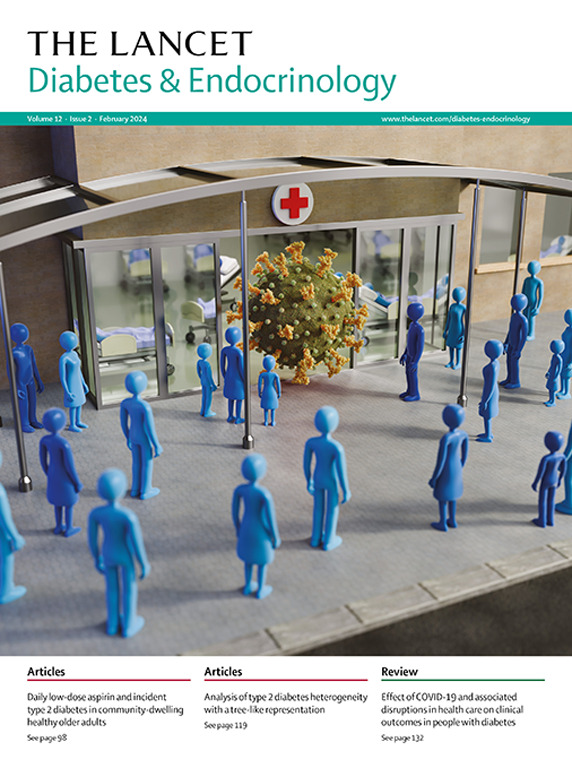酪氨酸激酶抑制剂诱导甲状腺功能减退的独特特征
IF 44
1区 医学
Q1 ENDOCRINOLOGY & METABOLISM
引用次数: 0
摘要
酪氨酸激酶抑制剂(TKIs)是抑制致癌蛋白激酶活性的抗癌药物。甲状腺激素异常在TKIs治疗期间很常见,典型表现为血清促甲状腺激素浓度升高,三碘甲状腺原氨酸(T3)与甲状腺素(T4)比值降低,甲状腺功能减退患者接受甲状腺激素治疗均如此。研究强调了TKIs对外周甲状腺激素代谢的影响,特别是通过干扰健康组织中去碘酶的活性。这些酶是TKIs的靶标,它们功能的改变可能在很大程度上导致循环甲状腺激素浓度的变化。虽然这种改变会影响对TKI治疗的耐受性,但TKI诱导的甲状腺功能减退与改善的生存结果有关。一些晚期恶性肿瘤显示2型脱碘酶的过表达,表明肿瘤组织中抑制该酶可能有助于TKIs的抗肿瘤作用。本文综述了tki诱导的甲状腺激素稳态破坏的研究进展,并讨论了在这种情况下治疗甲状腺功能减退的临床策略。本文章由计算机程序翻译,如有差异,请以英文原文为准。
The unique signature of tyrosine kinase inhibitor-induced hypothyroidism
Tyrosine kinase inhibitors (TKIs) are anti-cancer agents that inhibit the activity of oncogenic protein kinases. Thyroid hormone abnormalities are common during treatment with TKIs, typically manifesting as increased serum thyroid stimulating hormone concentrations and reduced tri-iodothyronine (T3) to thyroxine (T4) ratio, both in patients with an intact thyroid gland and those with hypothyroidism receiving thyroid hormone treatment. Studies have highlighted the effect of TKIs on peripheral thyroid hormone metabolism, particularly through interference with the activity of deiodinases in healthy tissues. These enzymes are targets of TKIs, and their altered function might contribute considerably to the changes in circulating thyroid hormone concentrations. Although such alterations can affect the tolerability to TKI treatment, TKI-induced hypothyroidism has been associated with improved survival outcomes. Several advanced malignancies show overexpression of type 2 deiodinase, suggesting that inhibition of this enzyme in tumour tissue might contribute to the anti-tumour effects of TKIs. This Review summarises advances in the understanding of TKI-induced disruption of thyroid hormone homoeostasis, and discusses clinical strategies for managing hypothyroidism in this setting.
求助全文
通过发布文献求助,成功后即可免费获取论文全文。
去求助
来源期刊

The Lancet Diabetes & Endocrinology
ENDOCRINOLOGY & METABOLISM-
CiteScore
61.50
自引率
1.60%
发文量
371
期刊介绍:
The Lancet Diabetes & Endocrinology, an independent journal with a global perspective and strong clinical focus, features original clinical research, expert reviews, news, and opinion pieces in each monthly issue. Covering topics like diabetes, obesity, nutrition, and more, the journal provides insights into clinical advances and practice-changing research worldwide. It welcomes original research advocating change or shedding light on clinical practice, as well as informative reviews on related topics, especially those with global health importance and relevance to low-income and middle-income countries. The journal publishes various content types, including Articles, Reviews, Comments, Correspondence, Health Policy, and Personal Views, along with Series and Commissions aiming to drive positive change in clinical practice and health policy in diabetes and endocrinology.
 求助内容:
求助内容: 应助结果提醒方式:
应助结果提醒方式:


